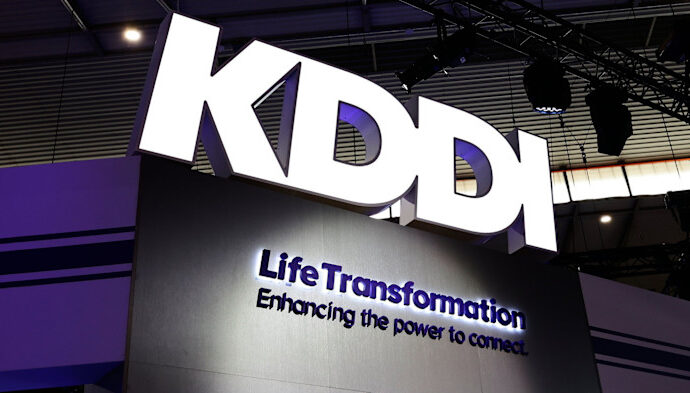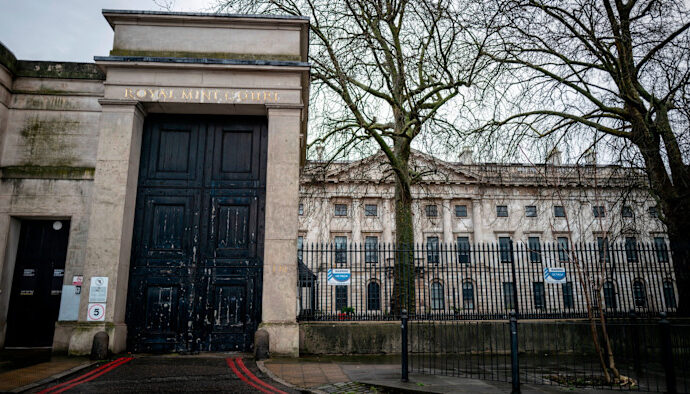The US has frozen restrictions on technology exports to China to avoid hurting trade talks with Beijing and help President Donald Trump secure a meeting with President Xi Jinping this year, according to people familiar with the matter.
The commerce department’s Bureau of Industry and Security, which runs export controls, has been told in recent months to avoid tough moves on China, according to eight people, including current and former US officials.
US and Chinese officials will meet in Stockholm on Monday for a third round of trade talks following previous meetings in Geneva and London.
While Trump wants to avoid actions that could hurt efforts to meet Xi, some officials have argued that the US is hamstrung on export controls because of the risk that China retaliates by restricting the export to the US of critical rare earths and magnets, as it did in May for the first time.
Earlier this year, Trump was poised to restrict technology exports to China. In April, his team told Nvidia it would block the export of its H20 chip, which was designed for the Chinese market after the Biden administration restricted more advanced chips. But Trump reversed course following direct lobbying from Nvidia chief executive Jensen Huang.
The H20 has become the focus of a battle between security officials, who say the chip will help the Chinese military, and Nvidia, which says blocking US technology exports forces Chinese groups to accelerate innovation.
Twenty security experts and former officials, including Matt Pottinger, who was deputy national security adviser in the first Trump administration, will on Monday write to commerce secretary Howard Lutnick to voice concern.
“This move represents a strategic mis-step that endangers the United States’ economic and military edge in artificial intelligence,” they write in the letter, which was seen by the Financial Times.
The letter was also signed by David Feith, the former top National Security Council technology official in the current Trump administration, and Liza Tobin, who served in the NSC during Trump’s first term. Kyle Bass, a Trump supporter and founder of Hayman Capital Management, also signed.
The experts said the H20 was a “potent accelerator of China’s frontier AI capabilities” that was more powerful than the H100, an advanced Nvidia chip blocked for export to China, in one key respect.
They said it outperformed the H100 in “inference” — the execution of AI functions as opposed to the training of AI models — and would help produce autonomous weapons systems, intelligence surveillance platforms, and other military advancements.
“We are fuelling the very infrastructure that will be used to modernise and expand the Chinese military,” they said in the letter, arranged by an advocacy group called Americans for Responsible Innovation.
James Mulvenon, an expert on China’s military and chief intelligence officer at Pamir Consulting, said the problem was not limited to one chip or company. “These decisions will determine which political system, which values, will ultimately control the most powerful technology in the history of the world.”
Nvidia said the criticisms in the letter were “misguided” and “inconsistent” with the AI action plan recently unveiled by Trump that puts a focus on US exports of AI technology. It said the H20 would “not enhance anyone’s military capabilities, but will help America win the support of developers worldwide”.
Critics disagree however. Jimmy Goodrich, a senior adviser to Rand for technology analysis, said chips are measured by power and memory bandwidth and that the H20 “excels at memory bandwidth beyond any current domestic Chinese chip” that was critical for the large-scale development of AI.
“The H20 is the gasoline fuelling China’s AI engine,” he added.
Beyond the H20 debate, US security officials and experts are frustrated that the Trump administration is holding back actions on China.
“Trump has now effectively frozen US export controls and given away the H20 semiconductor for nothing, undermining one of our most critical national security tools,” said one former official.
Steve Bannon, the former White House strategist in the first Trump administration, said allowing H20 sales to China was a big mistake.
“American companies spent decades being made fools of, getting duped by the Chinese Communist party transferring the crown jewels of our technology. For that they got nothing,” said Bannon.
“Unbelievably, the government is poised to make the same humiliating mistake, at the behest of companies that want to drive their own profits with zero concerns for the nation’s security.”
The FT reported in May that BIS had planned to add the subsidiaries of Chinese chipmakers to an export blacklist called the entity list. The targets have since been expanded to include subsidiaries of any Chinese group already on that list. The US has even informed China about the plan, according to people familiar with the matter.
The commerce department has still not unveiled the restrictions, which have become one test for whether the Trump administration will take tough measures on China or hold back to facilitate the trade talks.
The commerce department declined to comment on the freeze. But a spokesperson said the Trump administration had done more than the Biden administration, which did not impose restrictions on H20 sales.
The spokesperson said Trump had imposed export licence requirements for the H20 and would consider applications “carefully, accounting for both the benefits and the costs of potential exports from America”.
Nvidia said the Trump administration had “full visibility and authority over every H20 transaction”. Several people familiar with the situation said the Trump administration had yet to issue any H20 export licences.


